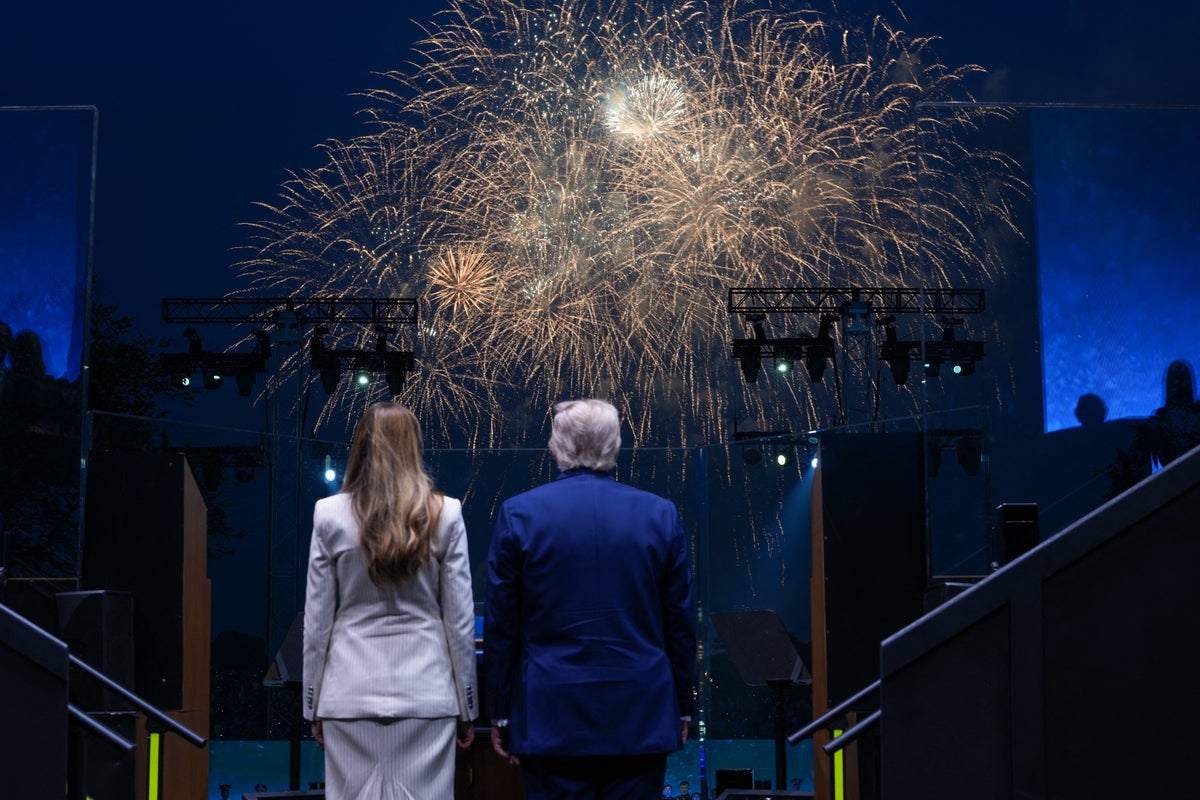From reproductive rights to climate change to Big Tech, The Independent is on the ground when the story is developing. Whether it’s investigating the financials of Elon Musk’s pro-Trump PAC or producing our latest documentary, ‘The A Word’, which shines a light on the American women fighting for reproductive rights, we know how important it is to parse out the facts from the messaging.
At such a critical moment in US history, we need reporters on the ground. Your donation allows us to keep sending journalists to speak to both sides of the story.
The Independent is trusted by Americans across the entire political spectrum. And unlike many other quality news outlets, we choose not to lock Americans out of our reporting and analysis with paywalls. We believe quality journalism should be available to everyone, paid for by those who can afford it.
Your support makes all the difference.
Read more
The Trump administration’s trade war with China is already causing headaches for companies supplying fireworks for today’s July 4 celebrations, and it may get worse in 2026, when the United States celebrates the 250th anniversary of its founding.
About 99 percent of the fireworks used in the U.S. come from China and producers and importers have struggled to navigate a rapidly changing tariff rate that has jumped from 10 percent to 145 percent, and to a current level of 30 percent, which expires in August.
Bob Hamilton, the owner of a seasonal fireworks business in Indiana, locked in much of his supply in April, before Trump’s 145 percent tariff rate took effect.
“By the time we figured out how to navigate this tariff thing for this year, it was a little bit too late in the game,” he told Business Insider.
Similar strain could be felt in the fireworks manufacturing hub of Hunan, China, which makes about 60 percent of the world’s fireworks, and is known as the historical birthplace of fireworks.

open image in gallery
The US imports almost all of its fireworks from China but tariffs have caused supply chain issues and scaled-back orders impacting this year and beyond (POOL/AFP via Getty Images)
Wendy Tang, owner of Pyroshine Fireworks in Liuyang, told NBC News that springtime is normally the boom season for U.S. orders for fireworks, but many regular producers had a “really hard time” gauging how much product to produce given the fluctuating tariff rate.
“In the morning, it’s 100 percent. But in the afternoon, it’s like 200 percent,” she said.
Industry figures in the U.S., who had lobbied Trump for an exemption to the tariffs, are warning that in 2026 these problems could be further magnified.
Fireworks are a low-margin business, and 2026 is expected to bring unusually high demand, given the expected celebrations around the semiquincentennial — the 250th anniversary of the country’s Declaration of Independence.

open image in gallery
About 99 percent of the fireworks used in the US come from China and producers and importers have struggled to navigate a rapidly changing tariff rate (ungvar – stock.adobe.com)
This tension, combined with ongoing supply chain disruptions including scaled-back production in China, packed warehouses, and competition for shipping container space, all could have an impact on 2026 fireworks displays.
“It’s really the next year that’s worrying us with the manufacturing and what tariffs will do,” said Stacy Schneitter-Blake, president of the National Fireworks Association, told The New York Times.
The White House has defended the tariffs, telling the NYT in a statement that “real prosperity and patriotism isn’t celebrating the independence of our country with cheap foreign-made firecrackers and trinkets.”
The industry may get some relief if Trump leans into his well-documented love of fireworks.
The Republican saw his name spelled out in fireworks above the 2020 Republican National Convention, and recently helped put on a fireworks show above the National Mall in Washington as part of an Army parade that fell on his birthday.
During a first-term trade war with China, fireworks were exempt.
